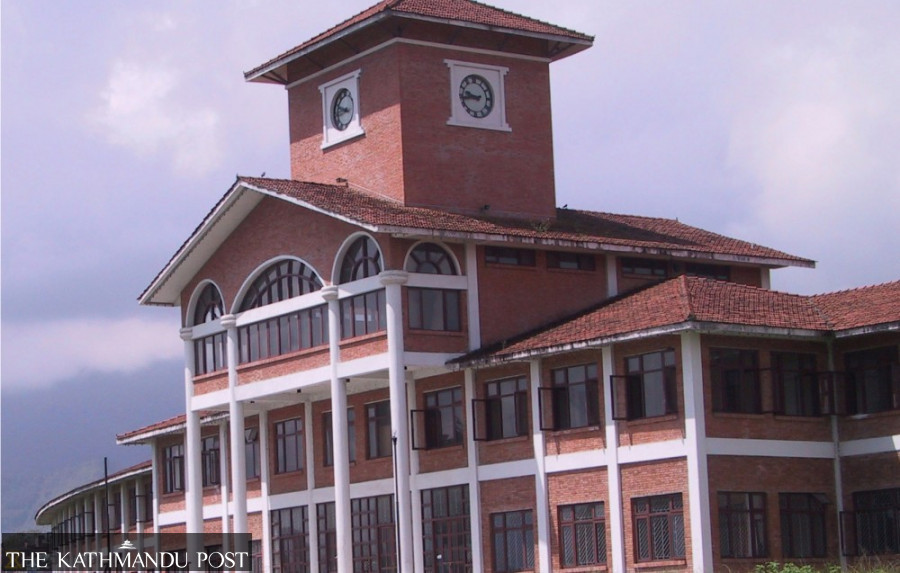Editorial
Alternative assessments
TU must understand that conducting sit-in exams is not the best option now.
These are unprecedented times for the education sector, but the decision by Tribhuvan University to conduct sit-in exams instead of proven alternative assessments amid the threat of the Covid-19 Delta variant just shows how archaic the institution has become. A second year into the pandemic, Nepal is only emerging out of a deadly second wave that crashed the health system and brought the country to a standstill for almost two months. The threat of a third wave looms large in Nepal, which is struggling to secure vaccine doses. Be it opening our schools, offices and factories or congregating thousands of students for sit-in exams, every decision we make today needs to be mindful of the implications on the health and wellbeing of the citizens. Now is not the time to be complacent.
The reckless announcement to conduct sit-in exams next month, which once again exposes the lack of coordination between different government agencies, must immediately be corrected and revised to reflect our epidemiological situation. Of the 77 districts, 75 districts are under some form of restrictions with a total ban on mass gathering. Congregating thousands of students and invigilators for sit-in exams is no different from opening schools, which are currently closed considering the fragile situation we are yet to come out safely from. In the wake of the pandemic last year, the education sector moved online. In a welcome decision, the government also approved internal assessments for schools, and various universities have also conducted virtual exams successfully. A rough analysis of the age-wise breakdown of Covid-19 infections and deaths shows how these decisions have been pivotal to prevent infections and save lives.
We must ensure the academic progression of students, but it is criminal to do so at the cost of lives and incalculable risks to society. Tribhuvan University has 1,124 affiliate and 61 constituent colleges with over 415,000 final year students under 125 programmes at the bachelor’s and master’s levels. However, the total number of examinees exceeds 500,000, considering the number of students who will retake the exams. One would think that the country’s oldest and largest hub of academia makes rational decisions after learning from the blunders last year, and swiftly offer alternative assessments like open-book exams, take-home exams or online exams; but like last year, the university last week published exam schedules for the stalled exams of the first and second years under different faculties of the bachelor’s level programmes. It is an irrational and unwarranted decision by the university administration when the daily positive rate of new infections is way higher than the permissible limit of 5 percent.
There should be no room for miscalculation and missteps, considering that a large chunk of the population is unvaccinated. Tribhuvan University officials need to understand that conducting sit-in exams will see a massive movement of students and officials as they travel and gather indoors. It doesn’t take an epidemiologist to figure out that this is not safe and could be a super spreader event with the Delta variant that can make the epidemic curve exponentially. How many people must die or acquire the infection before the government starts to make Covid-appropriate decisions?




 9.6°C Kathmandu
9.6°C Kathmandu














